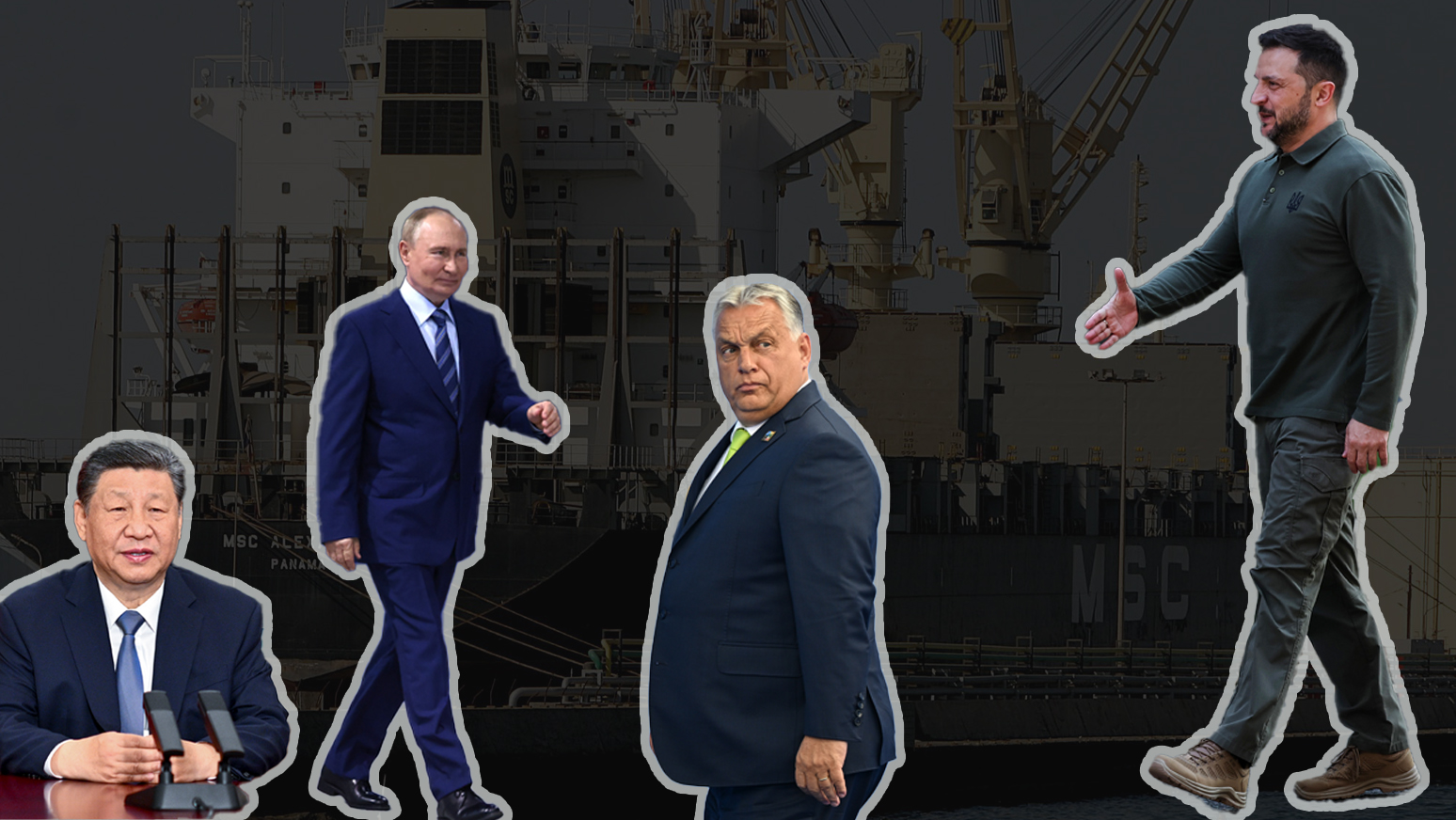Hungarian Prime Minister Victor Orbán paid a few hard-to-miss, high-level, surprise visits to celebrate the start of his country’s chairmanship of the European Union.
Flying first to Kyiv for a sit-down with UkrainePresident Volodymyr Zelensky, this was quickly followed by a visit to his political friends Russian President Vladimir Putin and Xi Jinping of China. Orbán dubbed this obvious exercise of power-play diplomacy a “peace mission”.
The response from Brussels was swift and stern: a near universal distancing by member states of his antics, and a clear sanction. As a sign of no-tolerance by the European Union, the prestigious meeting of European Union foreign and defence ministers – set to be held in Budapest at the end of August – has been moved to Brussels.
Russia, the aggressor, with no moral standing, is in no position to dictate peace terms. That Orbán lends himself to voicing Russia’s and China’s position on the war in Ukraine is not only wrong, it’s a mistake that harms Hungary’s interests.
European Union funding
Orban may walk away from his meetings in Moscow and Beijing with a few good photoshoots, but the vast weight of Hungary’s trade balance is European, and his country is a major recipient of European Union funding – neither of which is likely to change.
There is a cautionary tale here for leaders of African companies and countries. The European Union remains a key partner across the African continent, and the cost of straying too far into the arms of less savoury partners like Russia and China will not go unnoticed. We need a sober reassessment of what best serves our interests.
While I have been openly critical elsewhere of the European Union’s clumsy and at times unilateral diplomacy towards our continent, unfortunately the power dynamics are not in Africa’s favour.
Read more: EU eyes sanctions tweaks on Russian assets plan; Moscow offers 1.9m roubles to new military recruits
If we consider the broader “African” position, if such a thing can be said to exist, our interests lie in the European Union. What we have, they need. We have a youthful population, where theirs is ageing rapidly.
They face an imminent collapse of healthcare, and have a growing need for people and technology to meet that need. We have economic growth potential, in need of reliable capital, while the European Union exhibits low and slow growth rates and has capital looking for growth.
Finally, the European Union relies on African partners for the minerals to fuel their transition to a cleaner and greener economy. This joint interest means that African countries and companies should be relentlessly promoting the natural symbiotic relationship between the two regions.
Strategic perspective
China, on the other hand, has no need for our human capital – it is dealing with its own youth unemployment challenge. So, from a strategic perspective, that sets us up for a win-lose situation, as we compete with China for jobs.
There are also long-standing questions around the lack of skills transfer to African labour in major infrastructure projects, potentially unsustainable debt levels, and concern regarding African countries being called to host Chinese defence and military posts.
And, while Russia and China have a partnership with “no limits”, some boundaries should be welcomed. Notably questions of human rights should always be respected, and partnerships that foster stability should be favoured over partisan and polarising global relations.
However uncomfortable the comparison might seem, we are like Orbán. Our interests lie in Europe. And while there needs to be a broader conversation and strengthening of those relationships, this will not be achieved if Africa is seen to engage with Russia’s and China’s courtship.
I was recently asked at a European Union policy discussion forum “why doesn’t Africa speak up”? Look where things stand; the US is distracted with internal wrangling and navel gazing. China is preoccupied with security in the region and squabbles with Nato. Russia is entangled in its unjust war.
Why does Africa not set the tone?
So, the question is justified, why does Africa not set the tone and decide the direction of the conversation? Why not invite the European Union to the African table for dialogue? Why do we not seize this moment, show leadership, and build a renewed partnership with greater vigour and engagement?
It seems we are waiting, with the notion that Africa should be courted by the European Union, relationships should be fostered, kind words shared, and friendship bracelets made.
But if we want to be treated as equals, why not take charge? The lessons from Orbán are that the European Union members are losing patience and are increasingly willing to act to show their disapproval. By essentially arranging for a boycott by ministers of Hungary’s foreign affairs summit, the European Union is critical in a very public way.
The message is clear, and we face a choice. Follow Orbán into the abyss, or build for the African future we want with the European Union as more reliable partners. DM
Dr Kelly Alexander is the Managing Partner at TIGC, based in the Netherlands. She is faculty at the Gordon Institute of Business Science (UP), a Fellow of The Schumacher Institute, and holds a PhD in Management & Organisation Studies.




